During a press event onboard a Swedish naval patrol vessel, I interviewed Commodore Arjen Warnaar, Commander of Standing NATO Maritime Group 1 (SNMG1), about NATO’s mission to protect Critical Underwater Infrastructure (CUI) and monitor maritime activity under operation Baltic Sentry.
The event, held at sea, provided journalists the chance to observe NATO’s multi-domain deterrence in action, complete with live helicopter operations, bridge command briefings, and refueling exercises.
Throughout the event, Warnaar issued a firm warning to those behind recent suspicious maritime activity: NATO is watching.
Strengthening the Network
With Sweden and Finland joining NATO, their extensive regional knowledge has proven essential to ongoing operations. When I asked how they fit into the alliance’s structure, Warnaar made it clear that they are vital contributors.
“They they’ve been here forever, very much longer than I’ve been here. So they actually know more about the area and know more about the situation than we do. So in that perspective, they fit in very, very well and very, very we’re very glad to have them. But obviously within NATO, the issue is about interconnectivity, about working together, and that is improving at a very high, high rate, but that is what we’re focusing on. There are new members. It’ll take some time to integrate them completely, and we just have to take that time”
Their inclusion also strengthens NATO’s ability to monitor the Baltic Sea, which Warnaar described as a fully integrated network. “It’s a complete network we’ve stretched over the Baltic,” he explained, highlighting how this cooperation enables comprehensive surveillance and deterrence.
Surface, Air, Subsea, and Beyond
During the day’s activities, journalists observed the coordination of surface ships, helicopters, and other assets used to protect CUI. I asked Warnaar about the overall scope of assets involved in Baltic Sentry.
“Anything that will help our aims, reaches our aims,” he explained. “So that is going to be within the cyber domain, within the maritime domain, but also within the air and the space domains. We’ll use anything that can help us.”
This network ensures that any suspicious activity, from ships dragging anchors to potential sabotage, is quickly identified and monitored.
Why Finding a Smoking Gun is Difficult
When discussing recent anchor-dragging incidents over critical infrastructure, I asked Warnaar why it is so difficult to definitively identify whether they are intentional. His answer underscored the complexity of proving intent.
“What we have proved already is that the ships we named did the damage,” he said. “The hard part is if it was intentional or not. How do you prove this is done on purpose?”
However, Warnaar also pointed to the suspicious nature of the incidents: “On the other hand, being at sea for years, there’s not a captain I know, not one, that would have an anchor accident like we’ve seen happening here almost every week.”
This recurring pattern adds weight to NATO’s concerns about deliberate sabotage, even if direct evidence remains elusive.
A Visible and Persistent Presence
A key part of Baltic Sentry’s strategy is deterrence through presence, as we witnessed during the day’s patrols. When I asked Warnaar how NATO measures whether deterrence is working, he used an analogy.
“If you have a lot of break-ins in your neighborhood, the police start to patrol. What happens to the break-ins?” he asked rhetorically. “If you want to call that deterrence, that’s what we’re doing here. We’re visible, and we’re ready to react.”
He made clear that while proving deterrence is difficult, the logic is clear. “We’re here. We’re visible. If anything happens, we react. And what we hope for is that this will reduce the number of incidents that are going to happen,” he said.
Persistent Problem-Solving
When I asked if NATO is optimistic that Baltic Sentry will yield results and reduce maritime incidents, Warnaar expressed confidence in long-term solutions.
“I don’t know if NATO is optimistic. I am,” he said. “I firmly believe in the fact that if you keep on looking at a certain problem, keep on thinking about a certain problem, keep on working on a certain problem, in the end, you will be able to solve it. Just keep working the problem.”
Future Innovations
Given the UK’s focus on autonomous underwater, surface, and air vehicles in its defense review, I asked Warnaar if Baltic Sentry will see expanded use of such technologies. He confirmed that unmanned systems are already being used but declined to provide specifics.
“NATO is a very innovative alliance. We take what we can from all the different countries within NATO,” he said. “And for as far as I know, the UK is part of NATO. So if you are planning to innovate, obviously there’s going to be a benefit for NATO.”
A Warning
Toward the end of our discussion, I asked Warnaar if he had a message for those potentially responsible for the suspicious maritime activity. His warning was direct and clear.
“We’re here. We’re going to see you doing this. Stop it. If you continue, we’ll catch you somewhere along the line.”
Throughout the event, NATO demonstrated its commitment to protecting underwater infrastructure in the Baltic Sea through cooperation, innovation, and vigilance.
Sweden and Finland’s expertise, combined with multi-domain assets and evolving technologies, form a robust deterrence network capable of responding to emerging threats.
As NATO continues its mission, Warnaar’s warning to potential adversaries remains a key takeaway: NATO is watching, and it is prepared to act.


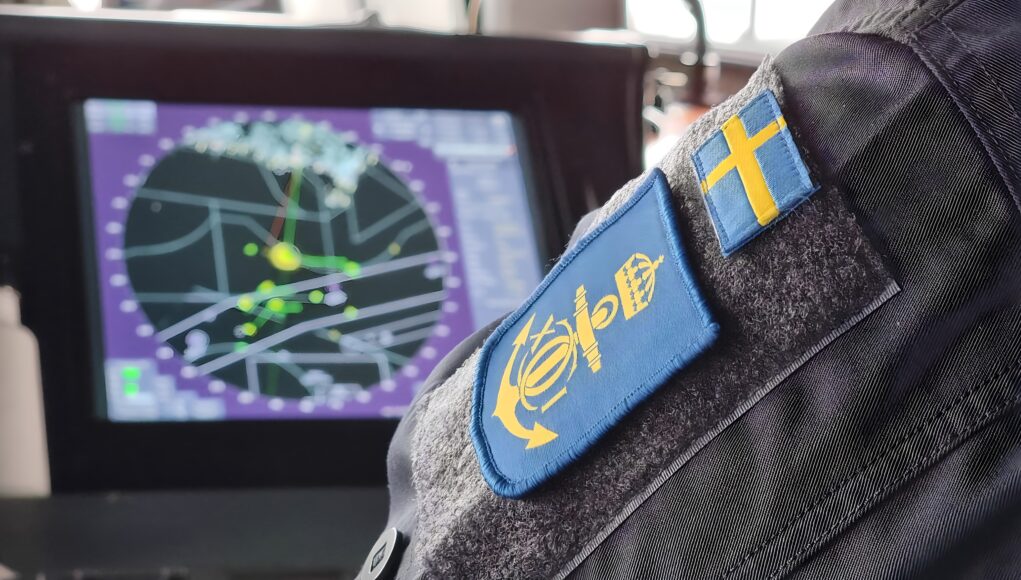








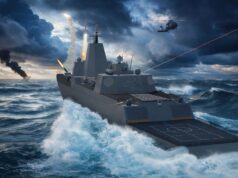
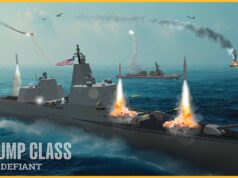



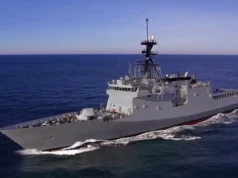
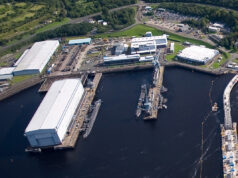

Good report,thanks👍
Having Sweden and Finland in NATO is such a game changer for Northern European security. We now have the ability to completely cut European Russia off from the sea and we can even grab all their naval assets with short helicopter trips and commandos raids.
It’s time to stop pissing around in the Baltic with Russia and get tough on any acts of sabotage. They have almost no ability to escalate anymore and very soon they won’t exist as a country.
It’s good that they are focusing on it but in the end what will they accomplish. The problem is the whole international and local legal structures around underwater cables. But essentially even if they can evidence purposeful maleficence it’s a civil legal issue.
Essentially if they find the evidence to prosecute, all the can do is prosecute the captain and company under civil law..issue a fine or whatever, which if it’s a state sponsored company or captain is essentially meaningless…they will either ignore the local court case or pay the fine not caring and the next next step up is to refer the case to the nation under which the ship is flagged for them to sort out..l.good luck with that.
Maybe they can prove that it was a Russian or Chinese supported opp..so what really ?
So far, nothing has been proved yet these sites are all over this and it’s big headline news on mainstream media. It’s getting harder to sort the wheat from the chaff lately.
I think the problem is NATO really has little idea how to actually handle this, sub kinetic conflict and political warfare has always been the issue for NATO..like Achilles NATO is essentially the ultimate war machine, but it’s Achilles heel is it’s vulnerability to sub kinetic conflict.
So NATO has fallen onto the path of making bold statements like we can see you..but the big question is so what ? Putin and Xi will literally not give two shits if NATO sees and finds evidence of a Likely State sponsored merchants “ accidentally on purpose” trailing their anchors. Putin deployed a weapon on mass destruction within a UK city to kill somebody he did not like, killing a Uk citizen, butting a city in terror..and we expelled a few diplomats..everyone still payed money for his oil..he looked the strong one..he’s invaded a European democracy..twice and European powers have really done sweet FA about it…he’s sponcered the topping African governments.
China and Russia an engaged in an ongoing campaign of sub kinetic, political warfare against the west and we are simply not fighting back in any meaningful way they recognise as a deterrent to prevent them from undertaking an ongoing campaign.
Exactly. The West has tied itself in knots legally with its lawyers, Euro Court of Human Rights, etc such that it is sclerotic almost to the point of paralysis. Heaven knows how many decades it will take to expensive lawyers to re-construct the legal system to allow crews that drag their ships’ anchors to be imprisoned and their ships and cargoes confiscated. pootin must be laughing his head off at this because he could get it done in a week in the rushan diktatorsbip. Xi as well.
Bottom line is the damage is being done before any action can be taken . We need to prevent the damage being done and the economic harm being wrought.
Yes but the question is how…the only way I can think of is if you tunnel the cables at huge expense.